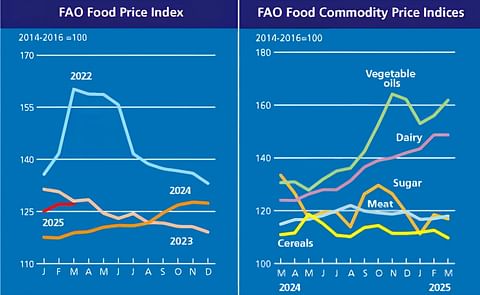A potato leaf showing late blight infection caused by Phytophthora infestans (Courtesy: Howard F. Schwartz, Colorado State University)
Two Blades Foundation partners with Simplot and The Sainsbury Laboratory to advance potato disease resistance

The Two Blades Foundation (2Blades) announced a research partnership between 2Blades, The Sainsbury Laboratory, and J. R. Simplot Company to develop potato varieties with increased resistance to oomycete and bacterial diseases.
Late blight, the oomycete disease that resulted in the Irish Potato Famine, is the most notorious of potato diseases and still a significant cause of yield loss in potato production today. The late blight pathogen, Phytophthora infestans, can also cause tuber rot. To identify long lasting resistance to late blight, scientists and breeders have turned to wild relatives of potato to identify resistance genes and introduce these into agronomic varieties. The current partnership aims to explore new sources of late blight resistance identified in the laboratory of Prof. Jonathan Jones at The Sainsbury Laboratory in Norwich, U.K.
Simplot has recently received USDA and FDA clearance for its second generation Innate® potatoes with late blight disease resistance for common North American strains. The partnership with 2Blades and The Sainsbury Laboratory will enable Simplot to add additional genes from wild potato varieties to combat global strains in future Innate generations.
Potatoes are also susceptible to bacterial diseases, such as bacterial wilt and soft rot that can affect plants in the field and can lead to significant losses for stored potatoes.
In addition to blight resistance, the new partnership will test the ability of the EFR gene, a broad-spectrum immune receptor that recognizes bacteria, to protect potatoes. The EFR gene is studied in the laboratory of Prof. Cyril Zipfel, Head of The Sainsbury Laboratory. EFR has already been demonstrated to confer resistance against bacterial diseases in tomato, tobacco, wheat, and other crops.
Craig Richael, Director of Research and Development, Simplot Plant Sciences:
“The partnership with 2Blades and The Sainsbury Laboratory combines some of the most promising technology to combat devastating diseases with the popular commercial varieties of potatoes.”
Diana Horvath of 2Blades:
“The Sainsbury Laboratory is at the cutting edge of discovery in the field of plant-pathogen interactions.”
“2Blades is pleased to advance the testing and deployment of Professors Jones and Zipfel’s discoveries by partnering with Simplot.”










